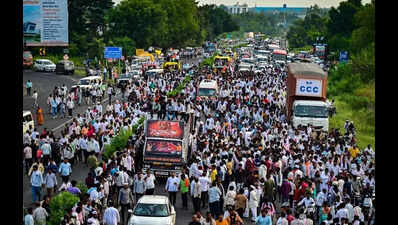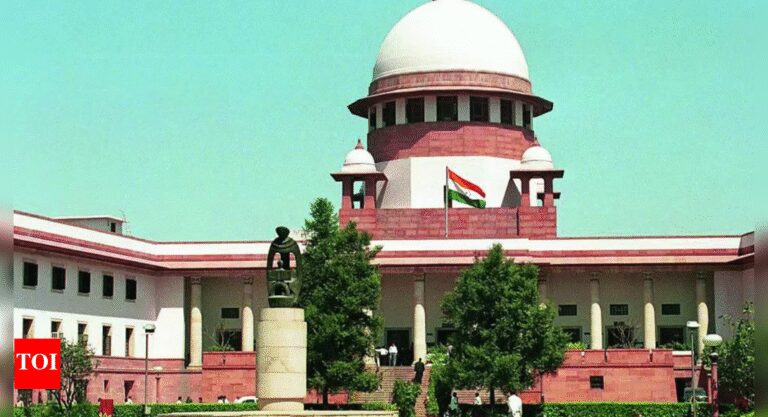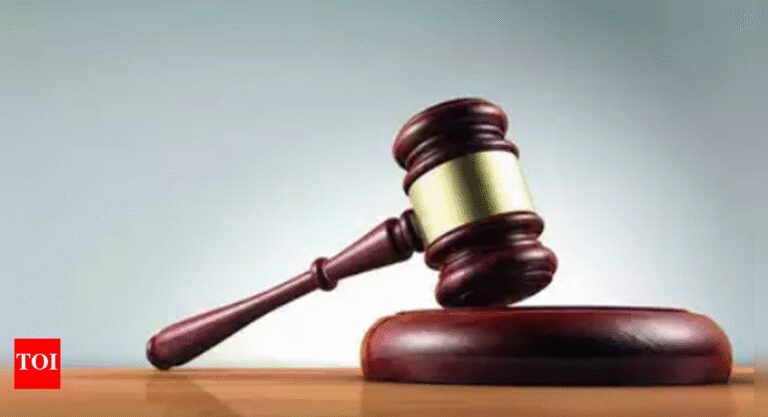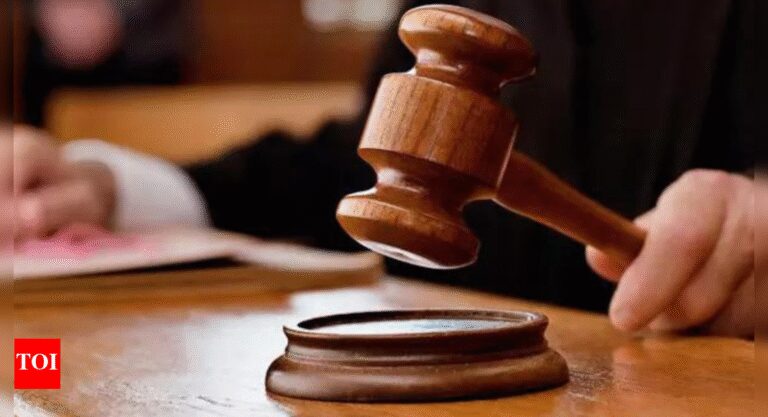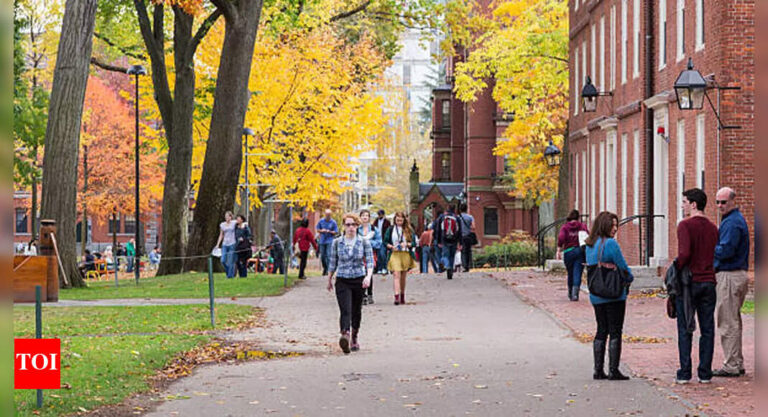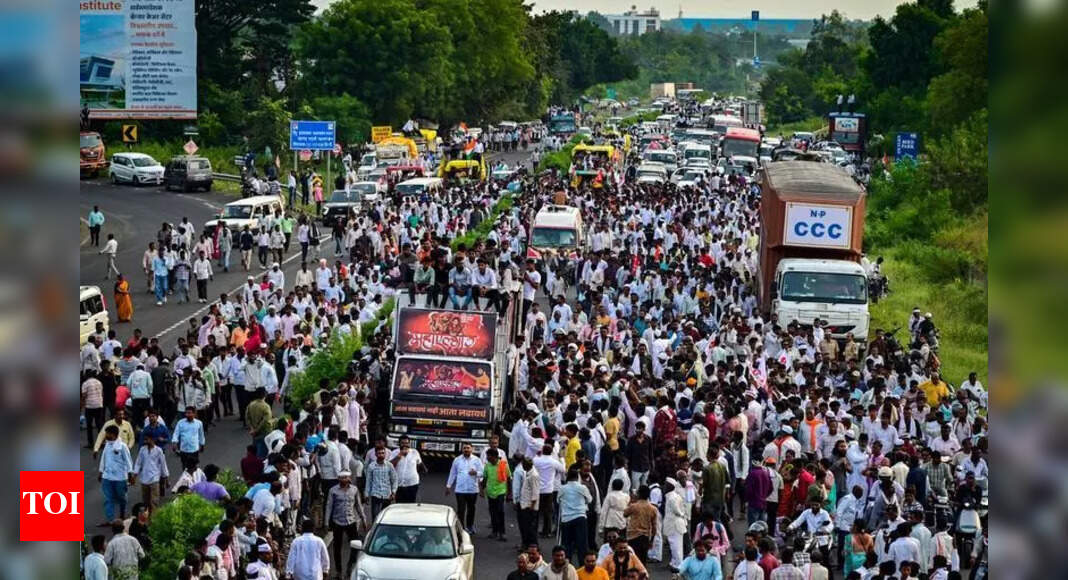
NAGPUR: The Nagpur bench of the Bombay high court on Wednesday took suo motu cognisance of the ongoing Wardha Road blockade orchestrated by former MLA Omprakash alias Bacchu Kadu and his supporters demanding loan waivers for farmers. Quoting a series of TOI reports of October 29, the court expressed serious concern over the extreme inconvenience faced by the public, including commuters, patients, women, and children, as thousands were stranded in traffic gridlock that extended over 20 kilometres, affecting access to Nagpur Airport, the National Cancer Institute, and the Samruddhi Mahamarg.“The extreme inconvenience suffered by the public due to the blockade of National Highway 44 cannot be ignored,” a single-judge bench of Justice Rajnish Vyas said. “While the right to protest is recognised, public roads are primarily meant for free movement and essential services. Blocking them without proper permission is a violation of fundamental rights of citizens.” The court noted that Kadu obtained official permission on October 26 from the senior police inspector, Beltarodi police station, allowing the agitation to be held only on October 28 at Mouza Parsodi, adjoining the Cotton Research Centre. “Prima facie, it is clear that without authorisation, the protest continued beyond the permitted area and date, increasing public hardship,” the judge said. The high court directed Kadu and his supporters to vacate Wardha Road and other affected roads immediately in a peaceful manner, without disturbing law and order. The court emphasised, “Any damage to public property by Kadu or the protesters will be dealt with stern action. Police authorities are authorised to remove all protestors if they fail to comply.” Authorities including the Nagpur commissioner of police, superintendent of police, and additional director general of police (Highway Traffic) were instructed to restore normal traffic flow by 6 pm on Wednesday and submit a compliance report by 11 am Thursday. The court added that senior citizens, women, children and specially-abled persons must be removed with dignity. “Police authorities have discretion to take appropriate action against violators who acted beyond the permission granted,” the bench said. The bench highlighted the wider public interest and safety implications, observing that the blockade not only affected private vehicles but also ambulances and police vehicles. “Public streets and highways serve social interests that outweigh the unrestricted exercise of freedom of assembly in such locations,” the bench remarked, referencing directives issued on September 1 in a PIL (No. 25656/2025) at Bombay high court’s principal bench in Mumbai while hearing a similar plea against Maratha reservation spearhead Manoj Jarange, whose supporters blocked Mumbai streets for the quota demand. Senior counsel and government pleader Deven Chavhan, along with AGP NS Rao, waived notice for all govt and police authorities. The high court further ordered that a copy of its directives be communicated immediately via email or WhatsApp to all concerned authorities. While adjourning the hearing till October 30 at 11am, the judge issued notices to Kadu, the commissioner of police, the collector, and other senior police officials, asking them to reply by November 6.Key takeaways from HC verdictProtesters led by Kadu violated the original permission of October 26 by continuing the blockade beyond the sanctioned area and dateEmphasised citizens’ fundamental right to free movement on public roads, including highways connecting airports, hospitals, and essential facilities Police authorities were empowered to remove protesters peacefully, while protecting vulnerable groups like women, children, senior citizens, and specially-abled persons Any damage to public property by protesters would attract strict actionCompliance report to be submitted by police authorities by 11 am on October 30, 2025, with returnable notices on November 6

